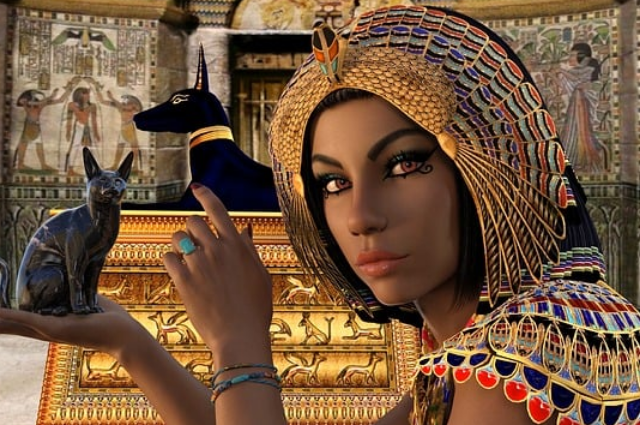
Photo by Alexander Krivitskiy on Unsplash
Introduction
Throughout history, the pages of textbooks and the annals of historical accounts have primarily been dominated by the stories of men. Women, however, have played an equally significant role in shaping societies, cultures, and the course of human events. Sadly, their contributions have often been marginalized, overshadowed, or outright forgotten. The time has come to unveil the hidden stories of remarkable women who have been consigned to the margins of history. This article aims to shed light on the lives, struggles, and triumphs of forgotten women from various periods in history. By delving into their stories, we will explore the immense impact they had on politics, art, science, social reform, and countless other spheres. Their narratives will challenge the traditional historical canon and provide a more inclusive and accurate understanding of our collective past. Gender bias and societal norms have long hindered the recognition of women's achievements. Historical accounts have frequently neglected to acknowledge their agency, innovation, and resilience. It is crucial to rectify this oversight, not only to pay homage to these extraordinary women but also to inspire and empower present and future generations. By unearthing the forgotten women of history, we will reveal the remarkable accomplishments that have long been overshadowed. From ancient civilizations to modern times, these women defied expectations, shattered barriers, and made indelible contributions to society. Their stories serve as a testament to the indomitable human spirit and the power of perseverance. Through this exploration, we seek to foster a deeper appreciation for the often-unseen forces that have shaped our world. By acknowledging these remarkable women and the challenges they overcame, we can gain a more comprehensive understanding of the human experience and work towards a more inclusive and equitable future.
The Marginalization of Women in Historical Narratives
Women have consistently been marginalized in the narratives that shape our understanding of history. Historically, the dominant accounts have focused primarily on the actions and achievements of men, relegating women to supporting roles or erasing their presence altogether. This gender bias in historical narratives has perpetuated a distorted view of the past and undermined the contributions and agency of women. Societal and cultural factors have contributed to the erasure of women's stories from historical records. Patriarchal systems, prevalent throughout much of human history, have subordinated women and assigned them limited roles within society. This relegation to the private sphere has often resulted in their experiences and achievements being disregarded in official accounts. Furthermore, women's contributions have frequently been undervalued due to gendered assumptions and biases. Historically, women were expected to fulfill domestic and caregiving responsibilities, which were perceived as less significant than the public endeavors typically associated with men. This perspective has systematically excluded women's achievements from historical narratives, perpetuating the notion that their impact was inconsequential. Consequently, the marginalization of women in historical narratives has had profound consequences.
It has perpetuated gender inequality, reinforcing societal norms that limit women's aspirations and opportunities. By neglecting the stories of remarkable women, history has failed to provide diverse role models for future generations, hindering the advancement of gender equality and inhibiting the recognition of women's agency. To rectify this imbalance, it is essential to challenge and reframe the traditional historical canon. By unearthing the forgotten stories of women, we can enrich our understanding of the past and gain a more accurate perspective on the complex tapestry of human history. This entails critically examining existing historical accounts, seeking out overlooked sources, and engaging in interdisciplinary conclusion that highlights the contributions of women across different fields and periods.
By acknowledging the marginalization of women in historical narratives, we can begin the work of rewriting history to be more inclusive and representative. This effort involves not only uncovering forgotten stories but also reevaluating the criteria by which historical significance has been measured. It requires recognizing the inherent biases that have shaped our understanding of the past and actively seeking out the voices and experiences of women who have been marginalized. Through a more comprehensive and inclusive approach to historical research, we can shed light on the immense contributions of women throughout history. By honoring their stories and achievements, we have the opportunity to inspire future generations, challenge gender norms, and foster a more equitable society. It is time to rewrite history, giving these remarkable women the recognition they deserve and reshaping our understanding of the past for a more inclusive and accurate portrayal of humanity's journey.
Unveiling Women's Contributions in Ancient Civilizations
In ancient civilizations, historical narratives have often sidelined the roles and accomplishments of women. However, a closer examination reveals the remarkable contributions made by women in shaping these societies. From the banks of the Nile in ancient Egypt to the bustling streets of Athens in ancient Greece, women played pivotal roles in politics, culture, and other domains. In ancient Egypt, the figure of Hatshepsut stands out as one of the most influential female pharaohs. She reigned during the 15th century BCE and implemented policies that brought prosperity to the kingdom. Through her ambitious building projects, trade expeditions, and diplomatic efforts, Hatshepsut solidified Egypt's power and left an enduring legacy. The ancient Greeks also witnessed the impact of remarkable women. Sappho, a poet from the island of Lesbos, broke societal norms by expressing her emotions and desires through her lyrical verses. Her work not only showcased her own talent but also influenced the development of Greek poetry for generations to come.
Cleopatra, the last pharaoh of Egypt, wielded immense political power and diplomatic finesse. Her alliances and intrigues with the Roman Empire shaped the fate of Egypt and influenced the course of history. Despite the controversies surrounding her reign, Cleopatra's intelligence and charisma left an indelible mark on the ancient world.

Image by Silvano from Pixabay
Beyond these iconic figures, countless women in ancient civilizations played vital roles in agriculture, craftsmanship, religious ceremonies, and education. Their contributions often supported the functioning of society and the flourishing of cultural and artistic expressions. However, the historical record has not always been kind to these women. Their stories have been overshadowed by the dominant narratives of male rulers and warriors. By excavating archaeological sites, analyzing ancient texts, and reevaluating existing scholarship, researchers are uncovering the hidden stories of these forgotten women. Through these efforts, we gain a more comprehensive understanding of ancient civilizations and recognize the multifaceted roles women played in shaping their societies. The inclusion of these narratives challenges the traditional notions of history and presents a more accurate portrayal of the complex and diverse dynamics of the past.
Unveiling the contributions of women in ancient civilizations not only highlights their individual achievements but also provides insight into the broader social, political, and cultural contexts of those times. It demonstrates that women were not passive bystanders but active participants, exerting influence and leaving lasting legacies. By acknowledging and celebrating the remarkable women of ancient civilizations, we honor their contributions and reclaim a more complete understanding of history. Their stories inspire us to reevaluate our assumptions, challenge gender biases, and create a more inclusive narrative that recognizes the full spectrum of human experiences throughout the ages.
Women in the Renaissance: Catalysts of Change

Image by Pexels from Pixabay
The Renaissance was a period of profound intellectual and artistic growth, and women played a significant role in driving this cultural transformation. Despite the prevailing societal expectations and limitations imposed on them, women in the Renaissance emerged as powerful agents of change, challenging conventions and making significant contributions to various fields.
In the realm of intellect and literature, Renaissance women made notable advancements. Figures such as Christine de Pizan and Isabella d'Este demonstrated their intellectual prowess through their writings and patronage of the arts. Christine de Pizan's works, including "The Book of the City of Ladies," questioned prevailing gender norms and advocated for the rights and education of women. Isabella d'Este, a prominent patron of the arts, cultivated a vibrant cultural scene in her court and used her influence to support artists and scholars. Artistic expression flourished during the Renaissance, and women made their mark as painters, sculptors, and musicians. Artemisia Gentileschi, an accomplished painter, challenged gender conventions by producing powerful and emotionally charged artworks. Sofonisba Anguissola, another talented artist, achieved recognition for her portraiture, capturing the essence of her subjects with remarkable skill and sensitivity. Women composers, such as Maddalena Casulana and Barbara Strozzi, composed music that captivated audiences and expanded the boundaries of musical composition.
Women also engaged in scientific pursuits during the Renaissance, defying expectations and contributing to the advancement of knowledge. Caterina Sforza, for instance, not only managed her family's territories but also displayed a keen interest in medicine and alchemy. Her efforts to promote scientific inquiry helped foster a climate of intellectual curiosity during this transformative period. The Renaissance was also marked by the emergence of influential female rulers who wielded significant political power. Queen Elizabeth I of England and Catherine de' Medici of France exemplified the ability of women to navigate complex political landscapes and exercise authority. Their reigns brought stability, cultural vibrancy, and diplomatic prowess to their respective kingdoms.
These women of the Renaissance challenged societal norms and expectations, defying the limitations placed on them by their gender. Their achievements not only contributed to the artistic, intellectual, and scientific flourishing of the period but also set a precedent for future generations of women.
However, it is important to acknowledge that the opportunities available to women in the Renaissance were still limited, and their contributions were often overshadowed or marginalized in historical records. Nevertheless, their persistence and determination helped pave the way for the gradual expansion of women's roles in society. By recognizing the achievements of women in the Renaissance, we gain a deeper appreciation for their resilience and their lasting impact on the cultural and intellectual landscape of the time. Their efforts remind us that even in eras characterized by strict gender roles, women found ways to challenge conventions and leave an indelible mark on history.
Women as Political, Social, and Cultural Influencers
Throughout history, women have played integral roles as political, social, and cultural influencers, challenging traditional gender roles and making enduring contributions to society. From ancient rulers to modern activists, women have shattered barriers and brought about significant change in diverse spheres. In the realm of politics, numerous women have risen to positions of power, defying societal expectations and leaving a lasting impact on their nations. Queen Elizabeth I of England, for example, navigated a complex political landscape and established England as a global power during the Elizabethan era. Her leadership, intelligence, and diplomatic finesse solidified her place in history as one of the most influential monarchs. Joan of Arc, a peasant girl turned military leader in medieval France, defied gender norms by leading armies and inspiring her compatriots during the Hundred Years' War. Despite facing immense challenges, she played a pivotal role in the French resistance and is remembered as a symbol of courage and conviction.
In the fight for social reform, women have been at the forefront of movements advocating for justice and equality. Sojourner Truth, an African American abolitionist and women's rights advocate in the 19th century delivered powerful speeches that highlighted the intersectionality of gender and racial oppression.
Her efforts to challenge systemic injustices laid the foundation for future civil rights and feminist movements. Throughout history, women have also made significant contributions to cultural and artistic endeavors. From the Renaissance to the present day, female artists, writers, and performers have enriched society with their creative expressions. Frida Kahlo, the renowned Mexican artist, used her artwork to explore identity, pain, and resilience, becoming an iconic figure in the art world and a symbol of female empowerment. Malala Yousafzai, a young Pakistani activist and Nobel laureate, has dedicated her life to advocating for girls' education and women's rights. Her unwavering courage and determination have inspired millions around the world and amplified the voices of marginalized women and girls. The impact of women as political, social, and cultural influencers extends beyond their individual achievements. Their collective efforts
have paved the way for progress, challenged oppressive systems, and empowered future generations to strive for equality and justice. However, women's contributions in these realms have often been downplayed or erased in historical narratives, reinforcing gender biases and perpetuating a skewed view of history. Recognizing and amplifying the stories of these remarkable women is crucial for fostering a more inclusive understanding of the past and present. By acknowledging the influence of women as political leaders, activists, artists, writers, and cultural icons, we honor their contributions and inspire others to challenge societal expectations and strive for positive change. The legacies of these remarkable women serve as a reminder that gender should never limit one's potential and that women's voices and actions have the power to shape the course of history.
The Suffrage Movement: Unsung Heroes

Photo by Engin Akyurt from Pexels
The suffrage movement, which fought tirelessly for women's right to vote, stands as a testament to the resilience and determination of countless unsung heroes. While figures like Susan B. Anthony and Elizabeth Cady Stanton are widely recognized for their contributions, the movement's success was a collective effort that involved women from all walks of life, often operating behind the scenes. In the late 19th and early 20th centuries, women faced formidable obstacles in their quest for suffrage. They challenged deeply ingrained societal norms that relegated women to the domestic sphere and denied them political agency. It was through the dedicated efforts of these unsung heroes that the suffrage movement gained momentum and achieved significant milestones.
Women like Ida B. Wells, an African American journalist, and suffragist, played a pivotal role in advocating for the rights of both women and marginalized communities. Her unwavering commitment to social justice and equality fueled her fight against racial discrimination and gender-based oppression. Alice Paul, a trailblazing suffragist, and women's rights activist, employed bold and innovative tactics to advance the cause. Through protests, hunger strikes, and advocacy at both the national and international levels, Paul helped secure the passage of the 19th Amendment to the United States Constitution, granting women the right to vote.
In addition to these well-known figures, countless grassroots activists, organizers, and volunteers dedicated their time and energy to the suffrage movement. Women from diverse backgrounds formed alliances, established suffrage societies, organized rallies and marches, and tirelessly campaigned for their rights in their communities. These unsung heroes faced immense backlash, including public ridicule, social ostracization, and even physical violence. Despite these challenges, they remained steadfast in their pursuit of justice and equality. Their collective efforts brought about a transformative shift in societal attitudes, challenging the notion that political participation was solely reserved for men. The suffrage movement was a turning point in women's history, expanding their opportunities for engagement in the public sphere and igniting subsequent waves of feminist activism. The bravery and sacrifices of these unsung heroes laid the foundation for progress in women's rights and helped shape the democratic societies we live in today.
It is essential to recognize and honor the contributions of these unsung heroes of the suffrage movement. Their dedication, resilience, and strategic activism were instrumental in securing one of the most significant milestones in the fight for gender equality. Their stories serve as a reminder that collective action, even in the face of adversity, can bring about transformative change. By shedding light on the stories of these unsung heroes, we ensure that their sacrifices and achievements are not forgotten. Their legacy inspires future generations to continue the pursuit of equality and justice, amplifying voices that have been marginalized and advocating for a more inclusive and equitable society.
Women in Times of Conflict: Active Participants and Resilient Supporters
In times of conflict, women have proven themselves to be active participants and resilient supporters, defying gender stereotypes and making significant contributions to the defense of their communities, the preservation of society, and the pursuit of peace. While history often focuses on the experiences of men in warfare, the stories of women in conflict zones reveal their courage, resilience, and unwavering determination. During World War II, women took on critical roles on the home front and in active combat. They worked in factories, producing weapons, ammunition, and supplies essential to the war effort. Women served as nurses, tending to the wounded and providing vital medical care. Some even joined resistance movements, engaging in acts of espionage, sabotage, and guerrilla warfare. The courageous actions of women in conflict extend beyond World War II. Throughout history, women have played vital roles in resistance movements, fighting against oppressive regimes and injustice. Women like Rosa Parks, whose refusal to give up her seat on a segregated bus sparked the civil rights movement in the United States, demonstrated the power of nonviolent resistance.
In more recent conflicts, women have been active participants in the military, serving in combat roles and proving their capabilities on the front lines. They have shown exceptional bravery and skill, challenging the notion that warfare is solely the domain of men. Women soldiers have navigated dangerous environments, fought alongside their male counterparts, and contributed to military successes. Additionally, women in conflict zones often become pillars of strength and support for their communities. They provide essential humanitarian aid, care for the wounded and displaced, and sustain the social fabric that holds communities together in the face of adversity. Their resilience and resourcefulness ensure the survival and well-being of their families and communities, even amidst the harshest circumstances. It is important to acknowledge that women in times of conflict also face unique challenges and vulnerabilities. They are often subjected to gender-based violence, sexual exploitation, and displacement. However, their experiences should not overshadow their agency, resilience, and capacity to effect positive change in the midst of turmoil.
Recognizing the contributions of women in times of conflict is crucial for a comprehensive understanding of history. By highlighting their stories, we challenge the perception of women as passive victims and acknowledge their active roles in shaping the outcome of conflicts. Moreover, understanding the vital role of women in times of conflict has practical implications for policy-making and humanitarian efforts. It underscores the importance of women's inclusion in peace processes, decision-making, and post-conflict reconstruction, as their perspectives and contributions are invaluable in building sustainable and just societies.
The stories of women in times of conflict serve as a testament to their resilience, bravery, and unwavering commitment to their communities and causes. By recognizing their contributions, we honor their sacrifices, amplify their voices, and ensure that their legacies are woven into the fabric of history.
Challenging Gender Norms and Stereotypes
Gender norms and stereotypes have long perpetuated rigid expectations and limitations on individuals based on their assigned gender. However, throughout history, courageous individuals and movements have emerged to challenge these norms, breaking barriers and paving the way for greater gender equality and acceptance. From the suffrage movement to the feminist movements of the 20th and 21st centuries, women have been at the forefront of challenging gender norms and fighting for their rights. Activists like Gloria Steinem, Betty Friedan, and Malala Yousafzai have tirelessly advocated for gender equality, challenging societal expectations and demanding equal opportunities in education, employment, and decision-making roles.
Similarly, men have also played a crucial role in challenging gender norms and stereotypes. Prominent figures such as Frederick Douglass, who fought against slavery and advocated for women's suffrage, and Chimamanda Ngozi Adichie, a Nigerian author, and feminist, have used their platforms to dismantle harmful stereotypes and promote gender equality.
The LGBTQ+ rights movement has also been instrumental in challenging gender norms and expanding societal understandings of gender identity and expression. Activists like Marsha P. Johnson and Harvey Milk fought for the rights of transgender and gay individuals, challenging the prevailing notion that gender and sexual orientation should conform to narrow societal expectations.
In popular culture, artists and entertainers have used their platforms to challenge gender norms and stereotypes. Icons like David Bowie and Madonna defied traditional gender roles through their androgynous fashion and performances, pushing the boundaries of societal expectations. In recent years, artists like Laverne Cox and Billy Porter have shattered gender norms in the realm of fashion and red-carpet events, opening up dialogues about gender identity and expression. Challenging gender norms and stereotypes is not limited to high-profile figures and movements. Countless individuals challenge these norms every day in their personal and professional lives, questioning traditional gender roles and embracing their authentic selves.
The efforts to challenge gender norms and stereotypes have brought about significant progress, but there is still work to be done. Stereotypes and gender expectations persist in various aspects of society, affecting individuals' opportunities, mental health, and overall well-being. Continued efforts to challenge and dismantle these norms are essential for creating a more equitable and inclusive world. By challenging gender norms and stereotypes, society moves towards embracing the full range of human experiences and identities. It allows individuals to express themselves authentically, regardless of gender and opens doors for equal opportunities and rights. Embracing diversity and breaking free from the constraints of gender norms benefits everyone, fostering a more inclusive and accepting society for future generations. The journey to challenge gender norms and stereotypes is ongoing, but the courage and resilience of those who have come before us serve as inspiration and a reminder of the power of individual and collective action. Together, we can continue to challenge, dismantle, and transcend societal expectations, creating a world where gender is not a barrier to anyone's aspirations and possibilities.
Gender and Technology: Bridging the Digital Divide
In the modern era, the rapid advancement of technology has revolutionized various aspects of society. However, an important issue that arises within this digital landscape is the gender gap and inequality in access to and participation in technology. The gender gap in technology manifests in multiple ways. Firstly, there is a significant disparity in access to technology between genders, particularly in developing regions. Women and girls often face barriers such as limited internet access, lack of digital literacy programs, and cultural biases that discourage their engagement with technology. Moreover, gender stereotypes persist within the technology industry itself. Women are underrepresented in tech-related fields, including computer science, engineering, and leadership positions within technology companies. This lack of representation not only perpetuates gender inequalities but also limits the diversity of perspectives and ideas in technological innovation. Efforts to bridge the gender gap in technology are underway. Organizations and initiatives worldwide are working to provide equal access to technology and digital skills training for women and girls. These initiatives aim to empower women with the necessary tools and knowledge to participate fully in the digital world.
Furthermore, initiatives focused on promoting women's representation and leadership in the technology sector are gaining momentum. Programs that encourage girls to pursue STEM (Science, Technology, Engineering, and Mathematics) education, mentorship opportunities, and support networks are helping to break down barriers and create more inclusive tech environments. Recognizing the importance of diverse perspectives in technology, there is a growing emphasis on the development of inclusive design practices. By involving women and underrepresented groups in the design and development of technology, products, and services can better address the needs and preferences of a broader range of users. Closing the gender gap in technology is not only a matter of equity but also crucial for societal progress. Technology has the potential to be a powerful tool for empowerment, economic growth, and social change.
By ensuring equal access and participation, we can unlock the full potential of women's contributions to innovation and problem-solving in a rapidly evolving digital world. To bridge the gender gap in technology, collaboration among governments, technology companies, educational institutions, and civil society organizations is essential. This collaborative approach can help create supportive ecosystems that provide equal opportunities, challenge biases, and foster an inclusive and diverse tech community. As we continue to navigate the ever-expanding digital landscape, it is crucial to address the gender disparities and inequalities that persist in technology. By striving for equal access, representation, and participation, we can unlock the immense potential of women and create a future where technology serves as a catalyst for gender equality and social progress.
Conclusion
The stories and experiences of women throughout history are a testament to their resilience, strength, and unwavering commitment to challenging gender norms and stereotypes. From ancient civilizations to modern times, women have played pivotal roles as political leaders, social activists, cultural influencers, and agents of change. Their contributions, though often overlooked or overshadowed, have shaped societies, advanced human rights, and paved the way for progress and equality. The marginalized narratives of remarkable women, the forgotten heroes of history, are being unearthed and brought to light. Their stories serve as inspiration for future generations, highlighting the importance of breaking down barriers, challenging societal expectations, and embracing the diversity of human experiences and identities. As we reflect on the achievements and struggles of women throughout history, it is imperative to recognize the ongoing work that lies ahead. Gender equality remains an essential goal for societies worldwide. We must continue to challenge gender norms, eliminate discriminatory practices, and ensure equal opportunities for all individuals, regardless of their gender.
In order to achieve this, we must confront and dismantle the systemic biases and barriers that perpetuate gender inequalities. Education, awareness, and advocacy are crucial in challenging the stereotypes and prejudices that limit the potential of women and marginalized genders.
Photo by ThisIsEngineering
Moreover, it is essential to foster inclusive environments that celebrate and value the contributions of all individuals. By promoting diversity and representation in all areas of life, from politics and academia to the arts and technology, we can harness the power of collective experiences and perspectives for the betterment of society. The journey towards gender equality is a shared responsibility, requiring the engagement and collaboration of individuals, communities, institutions, and governments. By recognizing and honoring the forgotten women of history, we acknowledge the inherent value of their stories and contributions. Their legacies serve as a reminder that gender should never be a barrier to achievement and that the fight for equality is an ongoing endeavor.
Don’t you think we need to create a world where gender justice is not just an aspiration but a reality? Together, we can find a fruitful way of building a peaceful planet where everyone gets their rights in the full sense.
REFERENCE
- Beard, M. (2017). Women & Power: A Manifesto. Profile Books.
- Cott, N. F. (1987). The Grounding of Modern Feminism. Yale University Press.
- Dubois, E. C., & Dumenil, L. (2018). Through Women's Eyes: An American History with Documents. Bedford/St. Martin's.
- Freedman, E. (2002). No Turning Back: The History of Feminism and the Future of Women. Ballantine Books.
- Lerner, G. (1994). The Creation of Patriarchy. Oxford University Press. ∙ Offen, K. (Ed.). (2000). Globalizing Feminisms, 1789-1945. Routledge.
- Ruiz, V. L. (2008). From Out of the Shadows: Mexican Women in Twentieth-Century America. Oxford University Press.
- Smith, B. G. (Ed.). (2008). Women's Roles in the Middle East and North Africa. Greenwood Publishing Group.
- Solomon, B. (2013). In the Company of Educated Women: A History of Women and Higher Education in America. Yale University Press.
- Ziegler, M. (2017). Forgotten Women: The Scientists. Cassell.

